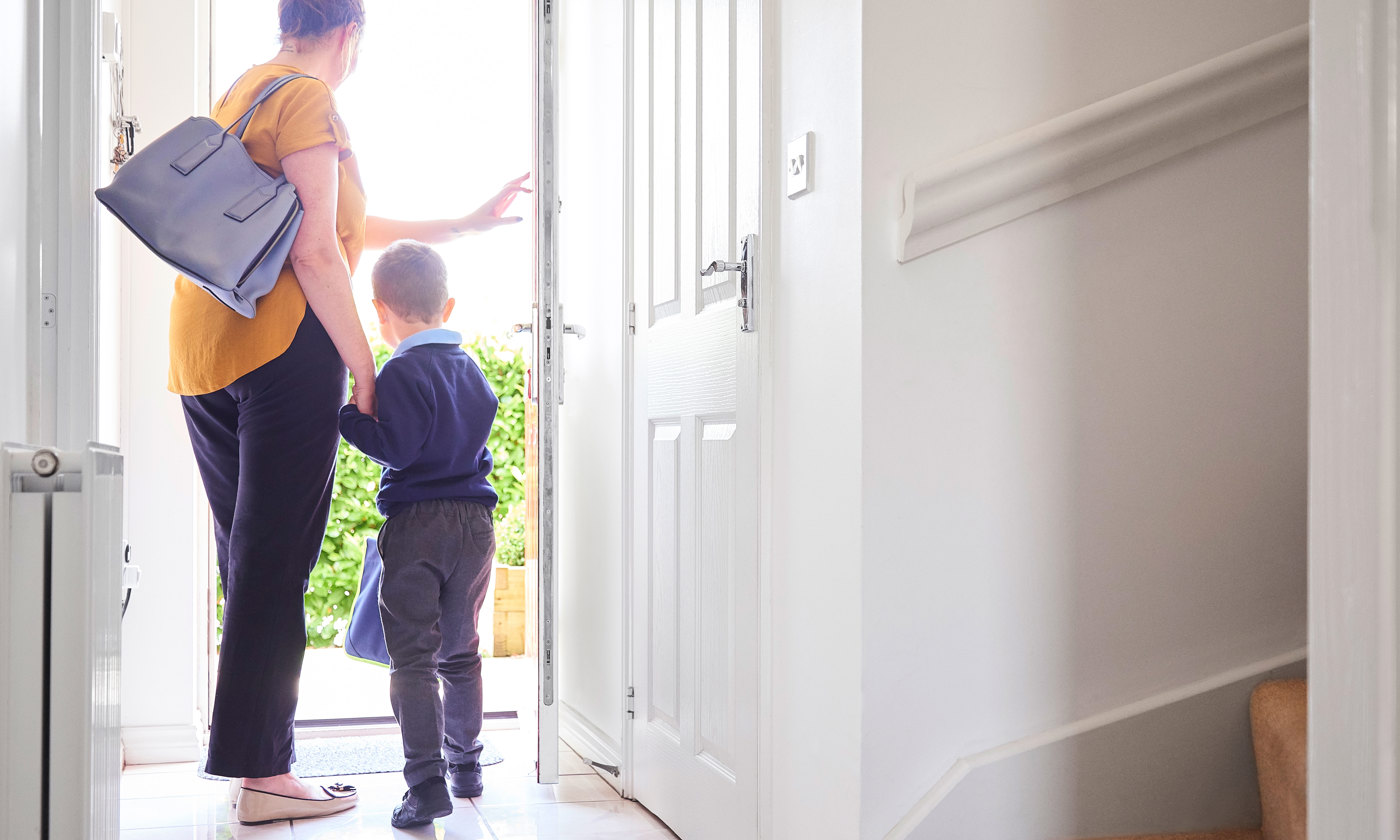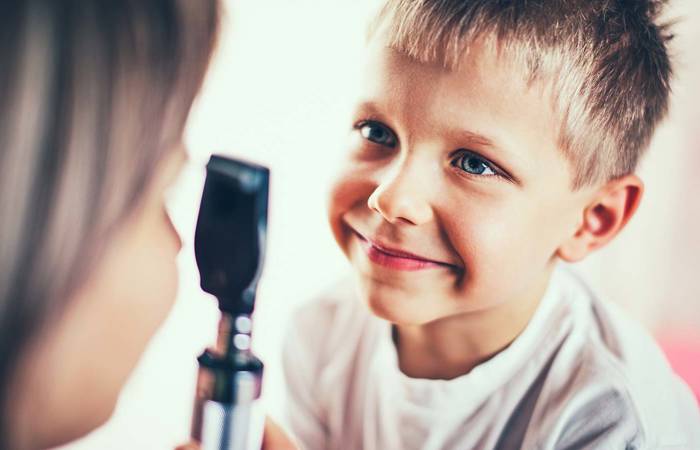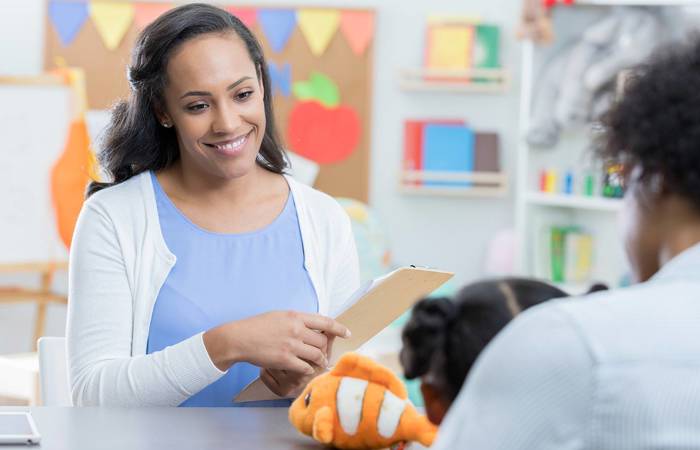Like what you see?
Sign up to receive more free parenting advice.
Thank you for subscribing to our newsletter!
Early Learning

Credit: iStock.com/MartinPrescott
Starting primary school is a time of mixed emotions for many children and families. COVID-19 has significantly disrupted 2020 and orientation sessions at local schools may look a little different.
As a family, you may be a little worried about whether your child will be ready for what lies ahead. This guide will help you to think further about your child starting school and put in place some ideas to help you at this time.1
We all experience transitions/changes in our lives such as moving home or starting a new job. How you cope depends upon how you view change. For some change is exciting, for others daunting. For change/transition to be successful there needs to be careful consideration, preparation and planning before such change occurs.
If moving home, just think through the preparations you do before the removal day. Such preparation is what you can start to think about with your child transitioning into school; talking to family members about the transitions, making lists of what needs to be done, e.g. buying and trying on the school uniform, learning how to put on school shoes.
Continuity of Learning
The Early Years Learning Framework for Australia (DEEWR, 2009), a national guide for early childhood education, highlights the importance of continuity of learning and transitions for children and families. It stresses the importance of collaboration and communication between families, children, teachers, educators at both the early learning centre and school to support the child during this time.
Each State and Territory has specific requirements about starting school. There are links at the end of this article you might find helpful. Phone your local school/school of choice to get started. The school can:
- help you to understand what you need to do to enroll your child.
- include you in any information that is being sent home to families.
- share with you how they might be connecting with children prior to the new school year.
Many parents have expressed concerns over whether their children will be ready to start school in the new year, particularly if they have missed valuable time at preschool/ kindergarten due to COVID-19.
Stay up to date with the latest news and articles from First Five Years
Thank you for subscribing to our newsletter!
Ready or not…
Many parents have expressed concerns over whether their children will be ready to start school in the new year, particularly if they have missed valuable time at preschool/ kindergarten due to COVID-19. Your first point of contact is to speak with your child’s early childhood teacher. In partnership, you will be able to:
- discuss your child’s learning and development and what you both see at home, in the community and at the early learning centre.
- get support in understanding your child’s learning progress and enable you to best understand how to support your child with his or her next learning steps. This may include the suggestion to enjoy a few extra Goodstart@Home activities before the commencement of school.
It is important to note that schools are also very aware of time lost due to COVID-19 and will be working very hard to ensure that they are able to meet children’s varying learning needs when they start in the new year.
Some ideas to support your child during this time
Social and emotional learning is a priority for children starting school. Resilience and self-esteem support children to want to learn and try again. These skills support children in feeling confident with academic skills they have been learning through play and intentional teaching in your early childhood centre. You can also support your child at home.
Some ideas for you to try at home:
- Read with your child, share stories together. Point out words, ask questions about the pictures.
- Check out the school website with your child and talk about what children are doing in the images.
- If you can drive/ walk past the school. Talk about what you can see.
- Practise putting on the school uniform.
- Prepare lunch boxes.
- Get used to carrying a school back pack.
- Schools are huge spaces for young children – visit a few really big spaces to help your child understand the vastness of larger spaces.
- Talk and show photos of the school bathrooms – a frequent area of stress for young children.
- Talk to your child if they would to have in their pocket a small item or photo that brings them comfort.
- Talk with your child about starting school (be careful with the language you use – after Christmas is Boxing day and quite a few more sleeps before school starts). You can use a calendar to mark off when school will start.
- Head over to Goodstart@Home where there are a whole range of activities to share with your child to support their learning and development.
Don’t forget the tasks that may seem simple to Mums and Dads but to a child can be difficult when first starting school. Again, you may wish to support your child at home before their first day. Can your child:
- Open his or her lunch box and drink bottle?
- Unwrap his or her lunch, or push the straw into the juice container if this is what is being taken to school?
- Unzip his or her bag and identify the bag when school bags may look all the same?
On a final note, don’t forget to enjoy this time, and your child’s first day – there may be tears (perhaps yours!), but remember that setting up your child with the necessary support to manage this transition will assist them with the many transitions they will experience throughout their lives.
1 This article has been developed by Goodstart Early Learning’s team of highly qualified early childhood and primary education experts.
Government websites to assist with starting school
ACT
Australian Capital Territory Department of Education: a guide for families starting school.
NSW
New South Wales Government Education Standards Authority: information and resources about starting school.
New South Wales Department of Education and Training: information about transition to school statements which are written by early childhood teachers in partnership with families and shared with the school your child will attend.
NT
Northern Territory Government: information about stages of schooling.
SA
Parenting South Australia guide for starting school: an information sheet for families with helpful tips about starting school.
South Australian Government: information about starting school.
QLD
Queensland Government Early Childhood Education and Care: collection of transition to school activities and resources designed to assist families, early childhood education and care providers and schools to support successful transitions.
VIC
Victorian Government Department of Education and Training: tips for starting school
Victorian Government Department of Education and Training: transition to school resources for families.
TAS
Tasmanian Government Department of Education: a checklist to support children in being prepared to start school.
WA
Western Australia Department of Education: information about starting school.






